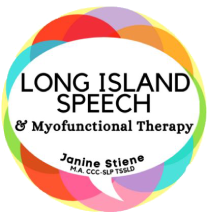Blog
Developmental Apraxia and Adult Apraxia of Speech
Apraxia is a general term that is used to describe the complete loss of this ability. There are two main types of speech Apraxia: acquired apraxia of speech and developmental apraxia of speech.
Acquired Apraxia of speech can affect a person at any age, although it most typically occurs in adults. Apraxia in adults is a neurological speech disorder, which results in impairment in the capacity to plan, or program sensory motor commands for the position and movement of muscles for the volitional production of speech. Acquired Apraxia occurs without significant weakness or neuromuscular slowness in the absence in disturbances to consciousness thought or language. This disorder affects the ideomotor production of speech and results in articulation errors, prosody changes with sequences of phonemes being affected. People with acquired Apraxia of speech have relatively preserved automatic speech behaviors (such as counting, or singing happy birthday).
Childhood Apraxia of Speech is a neurological childhood speech sound disorder where the precision and consistency of movements underlying speech are impaired in the absence of neuromuscular deficits. Developmental Apraxia occurs in children and is present from birth. The core impairment in planning and/or programming spatiotemporal parameters of movement sequences results in errors in speech sound production and prosody. Developmental Apraxia of Speech is characterized by inconsistent distortions substitutions errors of vowels and consonants, problems with volitional rather than automatic tasks, difficulties with multisyllabic words, difficulties with sequencing, poor lexical stress and other prosodic features. Children with Developmental Apraxia of speech will not outgrow the problem on their own. Speech-language therapy is often helpful for these children and for people with acquired apraxia who do not spontaneously recover all of their speech abilities.
Hope this was helpful!
Remy




